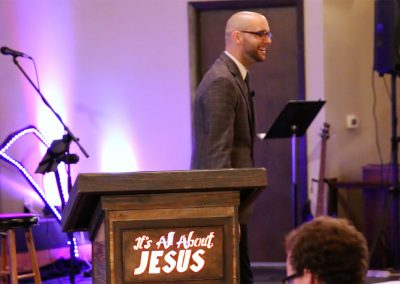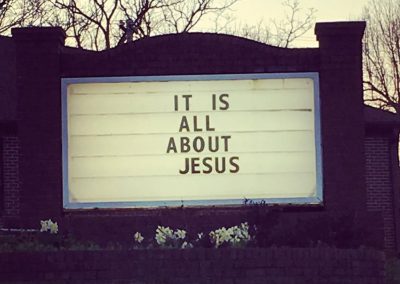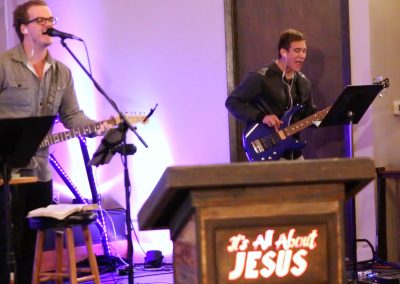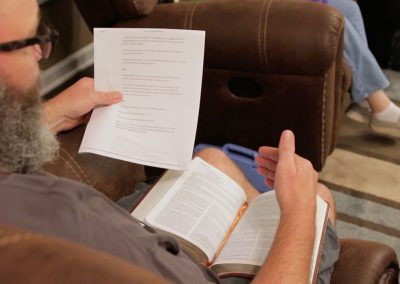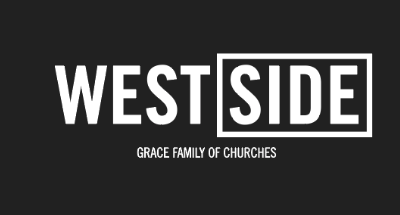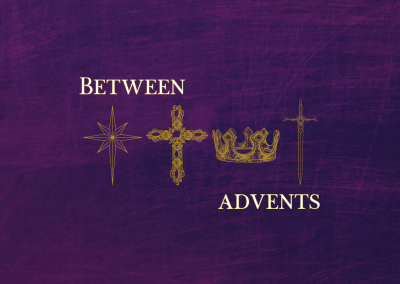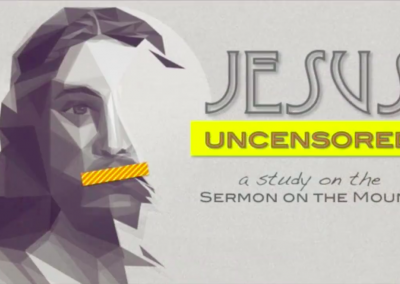Jesus and Prayer
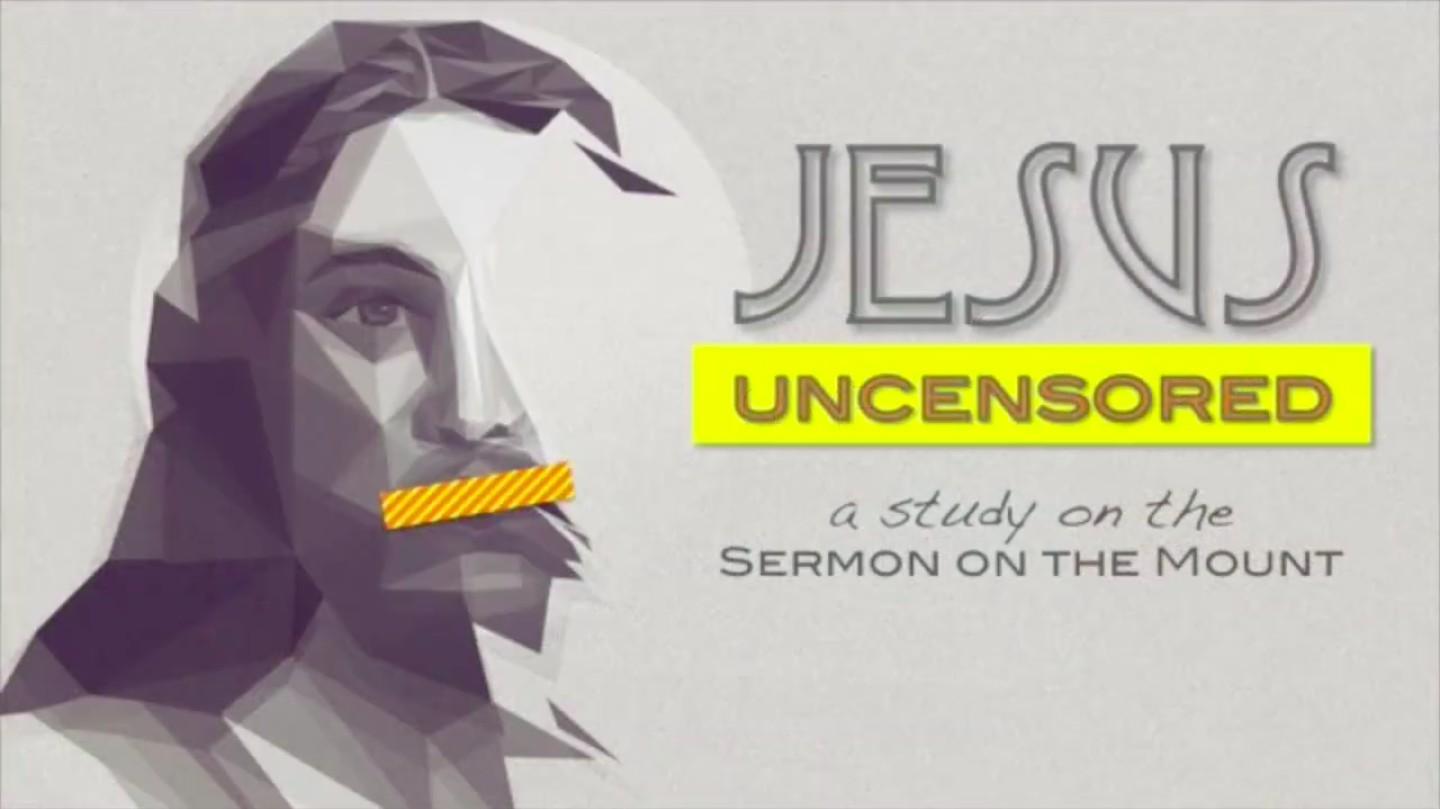
Date: October 29, 2017
Speaker: Jason Jordan
Series: Jesus Uncensored
Watch the archived Facebook LIVE stream by clicking the button below!
Pastor’s Comment
Thank you so much for listening in here at West Side. We often say that we love the word of God because it points us to the son of God. We hope these messages encourage you and equip you to love Jesus more. We also want you to be apart of a local church, we believe these messages are only supplemental, being apart of a local church is essential. Blessings.
Sermon Notes
Jesus Uncensored: “Jesus and Praying” Matt 6:5-15
INTRO> Today we are continuing in our journey not only through the sermon on the mount but also our section here in Matthew 6. Where Jesus is showing us in three areas, giving, praying and fasting.
Big Idea> In my relationship with Jesus what I do isn’t as important as why I do it.
*ILL> Being a father of 3 and still having a baby in diapers the last 5 years of my wife and I’s marriage has involved all sorts of things. But one of the things is watching our babies grow and learn to talk. They go from grunting to talking, one of the things that my wife will say to Piper even now is “Use your words”.
CONTEXT> That’s what we see in our text today about praying. Jesus has shown us what it is like to be in his kingdom, and today he “give us our words” by learning to pray. “Prayer is conversation of friends. It is not a mere convenience for letting God know what we are thinking or what we want. Prayer is that for which we were made. It is at the heart of God’s plan of salvation. To understand the tremendous privilege and importance of prayer we need to see it in the context of God’s purpose to have a relationship with his people. It is not possible for us to say, I will pray or I will not pray, as if it were a question of pleasing ourselves; to be Christian and to pray mean the same thing, and not a thing which can be left to our own wayward impulses. It is, rather, a necessity, as breathing for life.” Karl Barth, Prayer and Preaching pg 19
APP> Jesus will walk use through 3 areas, The Problem with Prayer, the Pattern of prayer and the Power for prayer. There is so much here, too much but may God grant us mercy to begin to grasp this.
- The Problem with Prayer.v5-9
-
-
- “when you pray, you must not pray like…” Notice that when Jesus teaches on prayer, he tells us how to first not pray. Why? Because prayer is hard and it’s not natural, God glorifying prayer that exults Christ is not something that comes natural to us that’s why Jesus says, “Pray then like this..” He has to give us the words. There are two primary problems Jesus gives about prayer.
-
- Selfishness. “don’t be like the hypocrites” Remember what we learned about them last week, the hypocrites. APP> Using God for what he has and loving God for who he is are two different things.
- Mindlessness. “heap up empty phrases” We get the word babble from this phrase that Jesus uses here. He is speaking about vain repetitions in prayer, almost a performance based prayer, like an incantation or something. APP> Our heart and emotions are engaged through our mind.
2) The Pattern of Prayer. v9-13
-
- Jesus lays out a pattern of prayer for us here that as John Calvin says, “lacks nothing”. We will look at it and break it down in 4 sections:
- Adoration. “Our Father in heaven…” The first element of prayer is simply adoring God for who he is. We can not say the words “Father” and not think of the gospel! *ILL> Islam book! “How is in heaven” He corrects our view!“Hallowed” isn’t a word we normally use, it means Holy, set apart. APP> Adoration recognizes that he is God and we are not.
- Submission. “Your kingdom come…” This is where I like the KJV with “thine” and “mine”.True prayer is the giving up of your own power. APP> Notice that Jesus is correcting the desires of our prayers, like a loving father corrects his children. “On earth as it is in heaven”
- Confession. “Give us, forgive us..” I think summarizing this under the word “confession is appropriate because at one level, we are confessing that at the end of the day, we can not provide for ourselves. “forgive us our debts” this isn’t prayer every day “to be saved” this is rather a prayer of restoration of the relationship. “ as we have forgiven” have you noticed in this prayer the language “Our 4x” “Us 5x” You can’t live out a prayer life in isolation.
- Aspiration. “lead us not into temptation” The last part of this prayer isn’t “give me” but rather “make me” Not give me something but make me somone. The word temptation could mean test. APP> We want to be like Jesus and pray like Jesus but we don’t want Jesus’ cross.
-
-
- The doxology “thine is the kingdom” is a scribal addition and the earliest manuscripts don’t have it, in fact Augustine doesn’t comment on it probably because it wasn’t there.
-
3) The Power for Prayer. v14-15
-
- “for if you forgive others their trespasses…” This passage of scripture is greatly confused but it should also carry weight with it as well. Why is this located here.. why end the prayer session on this?!
APP> The power of God’s forgiveness fuels our prayers to God.
Big Idea> In my relationship with Jesus what I do isn’t as important as why I do it.
Close> “Every other religion says, “Pray to God because he’s God and you’re human,” but only the Christian faith, of all of the world religions, says our God became a weak human being, and we have a God who had to pray. There’s no other religion that would dare say that. We have a God who became Jesus Christ, and when he was in the garden of Gethsemane he said, “Father, I don’t want to go to the cross. Father, I don’t want to die for their sins. Father, let this cup pass from me. Nevertheless, not my will but thine be done.”
How will you ever have the power to surrender to God, to see that God came to earth and became a weak person who had to pray “Thy will be done”? How are you going to surrender? Because he surrendered for you. How are you going to pray “Thy will be done”? Because he prayed “Thy will be done” for you. We’re the only faith that believes that when we pray to the Lord “Thy will be done,” we know he was down here and he knows what it’s like. He had to pray. We have a God who was so weak he had to pray.”
Keller, T. J. (2013). The Timothy Keller Sermon Archive. New York City: Redeemer Presbyterian Church.


